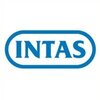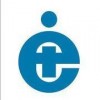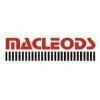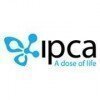Senior Executive QC
10+ Senior Executive QC Interview Questions and Answers

Asked in Intas Pharmaceuticals

Q. If any extraneous peak is observed in GC analysis, how would you handle that?
Extraneous peaks in GC analysis can be handled by identifying the source of contamination, adjusting parameters, and re-analyzing the sample.
Identify the source of contamination by checking sample preparation, column condition, or instrument cleanliness.
Adjust parameters such as temperature, flow rate, or injection volume to minimize extraneous peaks.
Re-analyze the sample after making necessary adjustments to ensure accurate results.
Consult with colleagues or experts if neede...read more

Asked in Intas Pharmaceuticals

Q. How do you handle Non-Quality Incidents (NQI) and Quality Incidents (QI), and what decision-making power do you have regarding whether or not to take action on an incident?
Handling NQI and QI incidents requires thorough evaluation and decision-making based on established protocols.
Thoroughly investigate the incident to determine if it falls under NQI (Non-Quality Incident) or QI (Quality Incident).
Refer to established guidelines, protocols, and quality standards to assess the severity and impact of the incident.
Consider the potential risks to patient safety, regulatory compliance, and overall quality of the product or service.
Consult with relev...read more

Asked in Intas Pharmaceuticals

Q. What is the formula for calculating CU value or AV?
The formula for calculating CU value or AV is based on the number of defects found during quality control inspections.
CU value (Criticality Unit) is calculated by assigning a weight to each type of defect based on its impact on the product or process.
AV (Acceptance Value) is calculated by summing up the CU values of all defects found during inspections.
Formula: AV = Σ(CU value of all defects)
Example: If a product has 3 critical defects with CU values of 5, 7, and 10, the AV w...read more

Asked in Intas Pharmaceuticals

Q. What are the stability zones and their conditions?
Stability zones are environmental conditions for storing pharmaceutical products to ensure their stability and efficacy.
Zone I: 25°C / 60% RH (e.g. refrigerated storage)
Zone II: 30°C / 65% RH (e.g. controlled room temperature)
Zone III: 30°C / 75% RH (e.g. accelerated storage)
Zone IV: 40°C / 75% RH (e.g. stress testing)

Asked in Saint-Gobain Weber

Q. How do you balance your work and personal life?
I prioritize work-life balance through structured routines, effective time management, and dedicated personal time.
Establish a clear work schedule: I set specific work hours and stick to them to ensure personal time is protected.
Use technology wisely: I leverage tools like calendars and task management apps to organize my tasks efficiently.
Practice mindfulness: I engage in daily meditation or yoga to maintain mental clarity and reduce stress.
Set boundaries: I communicate with...read more

Asked in Intas Pharmaceuticals

Q. What are the check points for a dissolution test?
Check points for dissolution test include equipment calibration, sample preparation, media selection, temperature control, and data analysis.
Calibrate equipment regularly to ensure accurate results
Properly prepare samples to ensure consistency
Select appropriate media for dissolution based on drug solubility
Maintain proper temperature control throughout the test
Analyze data accurately to determine dissolution rate
Senior Executive QC Jobs




Asked in Intas Pharmaceuticals

Q. What is UCL and LCL? And how they calculated?
UCL and LCL stand for Upper Control Limit and Lower Control Limit, respectively. They are statistical measures used in quality control to determine if a process is stable and in control.
UCL is the highest value that a process can reach before it is considered out of control.
LCL is the lowest value that a process can reach before it is considered out of control.
UCL and LCL are typically calculated using statistical methods such as control charts and formulas based on process d...read more

Asked in Intas Pharmaceuticals

Q. How many ICH guidelines?, and it's topics
There are 13 ICH guidelines covering various topics related to pharmaceutical quality, safety, and efficacy.
ICH guidelines are developed by the International Council for Harmonisation of Technical Requirements for Pharmaceuticals for Human Use.
Topics covered by ICH guidelines include quality, safety, efficacy, multidisciplinary topics, and pharmacovigilance.
Examples of ICH guidelines include Q1A(R2) Stability Testing of New Drug Substances and Products, Q2(R1) Validation of A...read more
Share interview questions and help millions of jobseekers 🌟


Asked in Intas Pharmaceuticals

Q. What are the dissolution criteria for extended-release drugs?
Dissolution criteria for extended release drugs are set to ensure the drug releases over a specific time period.
Dissolution criteria are typically based on the release profile of the drug over time.
Criteria may include the percentage of drug released at specific time points.
For example, a common criteria for extended release drugs is that at least 80% of the drug should be released in 8 hours.
The criteria are important for ensuring the drug's effectiveness and safety.

Asked in ICICI Bank

Q. Why do you want to change jobs?
I seek new challenges and opportunities for growth that align with my career goals and passion for quality control excellence.
Desire for professional growth: I want to take on more leadership responsibilities and drive strategic initiatives.
Alignment with career goals: My long-term vision is to lead quality control efforts in a dynamic organization.
Seeking new challenges: I am eager to tackle complex quality issues and implement innovative solutions.
Cultural fit: I believe th...read more

Asked in Macleods Pharmaceuticals

Q. Method validation for Assay by HPLC
Method validation for Assay by HPLC involves testing the accuracy, precision, specificity, and linearity of the method.
The method should be tested for accuracy by comparing the results obtained with a reference standard or method.
Precision can be determined by analyzing multiple samples and calculating the standard deviation.
Specificity can be tested by analyzing samples with known interferences and ensuring they do not interfere with the assay.
Linearity can be determined by ...read more

Asked in Intas Pharmaceuticals

Q. What are the different types of audit trails?
Audit trails are logs that track changes made to data, providing a record of who made the changes, when, and why.
Audit trails are essential for maintaining data integrity and compliance with regulations.
They help in identifying errors, fraud, or unauthorized access to data.
Examples of audit trails include logs of user actions in a software system, changes made to a document, or modifications to a database.
Audit trails should be secure, tamper-evident, and easily accessible fo...read more

Asked in Amazon

Q. What is your greatest weakness?
My weak area is time management, particularly in balancing multiple projects simultaneously.
I sometimes underestimate the time required for complex tasks, leading to tight deadlines.
For example, during a recent project, I miscalculated the time needed for quality checks, which caused delays.
I am actively working on this by using project management tools to better allocate my time.
I also prioritize tasks more effectively by breaking them down into smaller, manageable parts.

Asked in Amazon

Q. What is your area of expertise?
My commanding area encompasses quality control processes, regulatory compliance, and team leadership in the pharmaceutical industry.
Expertise in developing and implementing quality management systems to ensure compliance with FDA regulations.
Experience in leading cross-functional teams to conduct root cause analysis and implement corrective actions.
Proficient in using statistical process control (SPC) techniques to monitor and improve product quality.
Successful track record i...read more
Interview Experiences of Popular Companies








Reviews
Interviews
Salaries
Users

















